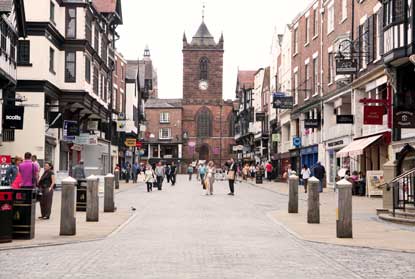By Richard Johnstone | 18 May 2012
English councils will be able to keep only half of the income from business rates when they take control of them next year, the Department for Communities and Local Government has revealed.
 It confirmed yesterday that Whitehall will claim a central rate share of 50%, more than some local government campaigners had hoped for, which will be redistributed to councils in grants. The department said this was to ensure that local government spending does not exceed the limit set in the Comprehensive Spending Review.
It confirmed yesterday that Whitehall will claim a central rate share of 50%, more than some local government campaigners had hoped for, which will be redistributed to councils in grants. The department said this was to ensure that local government spending does not exceed the limit set in the Comprehensive Spending Review.Publication of the information fills in outstanding gaps in the government’s plan to allow town halls in England to keep some of their non-domestic rates to support local economic growth.
Among other details confirmed yesterday is that the system of top-ups and tariffs for authorities, which will ensure that all town halls have a fair baseline at the start of the scheme, will remain in place for seven years. This will be determined on council’s 2012/13 formula grant funding and uprated along with inflation, but otherwise unaltered in the period. Authorities will instead get to retain some of the growth in rates.
Local Government Secretary Eric Pickles had previously said his preference was for the system to be reset less often, every ten years. However, some councils had raised concerns that this was too long, warning that if business rate growth was unable to match increasing costs, councils might not be able to meet demand for services.
The details were published ahead of the Third Reading of the Local Government Finance Bill in the House of Commons next week. This Bill will bring in the new system.
The levy on ‘disproportionate’ gains councils might make from a high growth rate has also been set.
Pickles said this would be a ratio of 1:1, so that for every 1% increase in business rates base, an authority would receive no more than a 1% increase in income, measured against its baseline. This will apply only to tariff authorities.
Revenue collected through this levy will fund a safety net to protect councils experiencing a downturn in revenue. While the precise level of safety net has yet to be set, the minister confirmed it would ensure that a council’s income does not fall by more than 10%.
Outlining the details of the system, Pickles also published a departmental analysis showing that projected economic gains from business rate relocalisation could add £10bn to gross domestic product over the seven year reset period.
He added: ‘The current flawed system of government handouts to local authorities encourages a begging bowl mentality, with each council vying to be more deprived than its neighbour. Our reforms will allow councils to stand tall, and reward them for supporting local jobs and local firms. All councils, including the least prosperous, have the opportunity to gain from this system.’





















